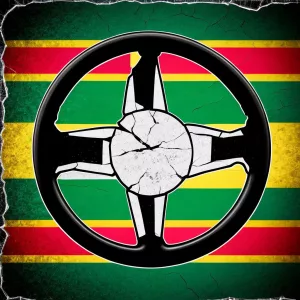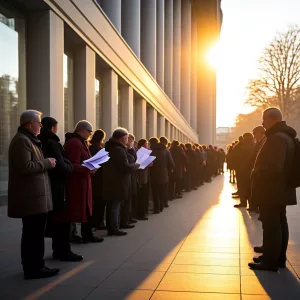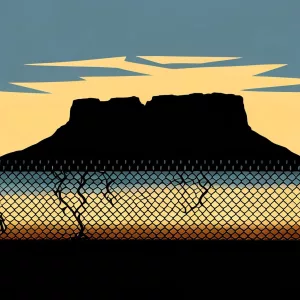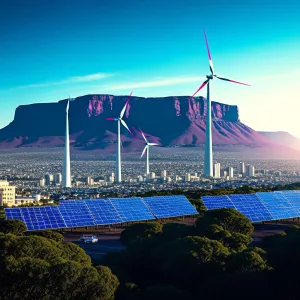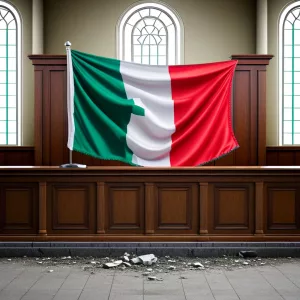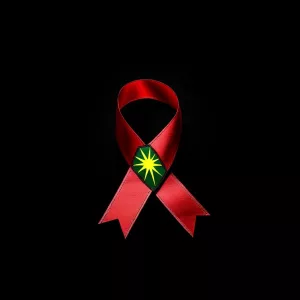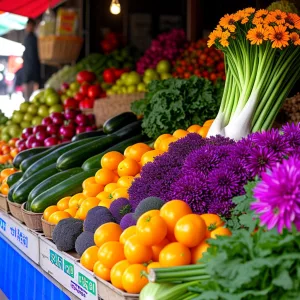Mpox, a virus causing fever and a distinctive rash, has returned to Cape Town, sparking concern across the city. Health officials are acting fast with vaccinations and clear public messages to stop its spread and protect those most at risk. Communities are coming together, learning about symptoms, and supporting each other to stay safe. Though the challenge is new, Cape Town faces it with hope, teamwork, and strong care.
Cape Town is investing over R300 million to breathe new life into parks, cemeteries, libraries, clinics, and shelters across the city. This bold plan will create 100,000 new burial plots, refresh beloved recreational spots, and bring modern technology to libraries, making them vibrant hubs for learning. Health clinics and safe shelters are also getting upgrades to better care for the community. Together, these projects aim to honor the city’s heritage while building welcoming spaces where everyone can connect, heal, and grow.
South Africa’s Road Accident Fund (RAF), once a promise of support for accident victims, is now in deep trouble. Years of boardroom fights, poor leadership, and costly legal battles have drained its money and slowed payments to those who need help most. The government stepped in, dissolving the board to fix the chaos and restore public trust. With urgent reforms planned, there’s hope the RAF can heal and once again protect thousands of families facing hardship after road accidents.
SASSA is changing how social grants are given in South Africa by using new technology like biometric checks to make sure only the right people get help. This helps stop fraud but means many must visit offices for reviews, causing long lines and stress for some. Payment dates have also shifted for those under review, urging people to update their information quickly. While these changes aim to improve fairness and efficiency, challenges remain for those without easy tech access or who live far from service points. SASSA’s goal is to balance smart systems with care, so no one loses the support they need.
Cape Town is fighting a new South African law that takes away local control over buying goods and services, which the city says could slow down urgent actions like emergency supplies. The city’s leaders worry this law will make it harder to respond quickly in crises and weaken democracy by centralizing power in the national government. Cape Town’s bold move to bring the case straight to the Constitutional Court shows how serious the issue is, as it could shape the future balance between national rules and local freedom. Many people are watching closely, knowing this decision will affect not just Cape Town but the whole country’s way of governing.
Cape Town’s Vision 2050 is a bold plan to build a fairer, greener, and more connected city. The city aims for most people to use public transport, rely on renewable energy, and have better water sources by midcentury. It also plans to create thousands of affordable homes each year to help bridge social divides. This vision invites everyone in the community to join hands and shape a future where Cape Town’s history and beauty inspire a brighter, united tomorrow.
South Africa’s Driver’s Licence Crisis: Breakdown, Backlogs, and the Fight for Solutions
South Africa is facing a big problem with driver’s licences because an old, single machine broke down, stopping over 600,000 licences from being printed. This mess came from years of poor planning and delays, leaving many drivers stuck and worried about their legal right to drive. The government is trying new ideas, like making a new printing machine with help from another department, and giving drivers a grace period while they fix things. Despite the troubles, people keep hoping and working together to find solutions and get back on the road.
South Africa’s Truth and Reconciliation Commission (TRC) was created to uncover the truths of apartheidera crimes by encouraging open storytelling and forgiveness. It gave victims and perpetrators a stage to share painful memories, hoping to heal the nation, but many cases were left without justice. Though the TRC revealed harsh truths and inspired hope, deep wounds and inequalities remain, showing that true healing is still a work in progress. The journey continues as families, activists, and artists keep memories alive, demanding justice and a fairer future.
South Africa’s HIV program is facing a serious funding crisis after major US donors like PEPFAR and USAID suddenly pulled out. This shock has exposed the risks of relying too much on foreign aid and pushed the government to find new ways to keep HIV care alive. Despite the challenges, local communities and activists remain strong, fighting to protect years of progress in HIV treatment and support. The country now seeks to build a future where it can stand on its own feet, with fresh partnerships and a focus on sustainability. This moment is a tough test—but also a chance for South Africa to lead the way in innovative, selfreliant HIV care.
Cape Town International Airport is much more than just a place to catch a flight—it’s a warm, welcoming gateway filled with art, culture, and stunning views of Table Mountain. Known for its perfect timing and happy passengers, the airport blends smooth, efficient service with the bright spirit of South Africa. Inside, travelers can taste local flavors, explore beautiful crafts, and hear lively music that brings the city’s colorful soul to life. With a strong focus on care, innovation, and nature, this airport turns every visit into a special memory, making travel feel easy and truly enjoyable.
In 2024, South Africa’s social grant system faced a crisis when a planned card swap by Postbank went badly wrong, leaving millions confused and unable to access vital funds. Poor communication and rushed changes caused long lines and frustration among elderly and vulnerable people who rely on these grants to survive. The fiasco revealed deep problems in managing and protecting social support, with a looming deadline to find a new payment system by 2025. This crisis threatens not just money, but trust between the government and its people, putting the nation’s promise to care for its poorest at serious risk.
Oranjezicht City Farm Market in Cape Town is a bright, lively place where fresh, local food meets warm community spirit by the sea. Every weekend, people gather to enjoy colorful fruits and veggies, tasty farmtotable meals, and friendly chats with farmers who grow the food. The market feels like a village, full of laughter, learning, and care for the earth, where visitors of all ages discover the joy of nature and sustainability. It’s more than a market—it’s a joyful celebration of food, culture, and a greener way of living.
Hotel Sky invites you to enjoy a cozy and exciting winter staycation right in the heart of South Africa’s vibrant cities, Cape Town and Sandton. With comfy rooms, familyfriendly perks like free stays for kids under 14, and dining with breathtaking city views, it’s perfect for families and explorers alike. Step outside and discover lively streets, rich culture, and cool adventures waiting just minutes from your door. This winter, skip the long trips and rediscover the magic of your own city with warmth, comfort, and fun all in one place.
Winter roads in the Western Cape turn deadly because rain, fog, and early darkness make streets slippery and hard to see. During one tragic week, 23 people died, many of them pedestrians walking in unsafe, poorly lit areas. Reckless driving and alcohol make things worse, while police try hard to catch offenders. Despite the sadness, community groups and caring people work together to keep each other safe, showing that hope and change are still possible.
Coartem Baby is a new malaria medicine made just for tiny infants weighing less than 5 kilograms, bringing hope to babies in subSaharan Africa who were left without safe treatment before. This easytogive, carefully measured drug helps protect the most fragile little ones from malaria’s deadly grip. After years of struggle and teamwork, Coartem Baby is now reaching villages and clinics, promising a brighter future where more babies can survive and thrive. It’s a shining example of how science and care can come together to save lives.
Power Struggle in American Politics: Elon Musk, Donald Trump, and the Rise of the America Party
Elon Musk and Donald Trump once worked together, hoping to fix government waste and make things run better. But they split because Musk didn’t agree with Trump’s big spending plans. Musk then started a new group called the America Party to challenge the two main parties, shaking up politics. Trump wasn’t happy, seeing Musk as a threat to his power. Their battle is full of drama, showing how tough it is to change America’s political system.



